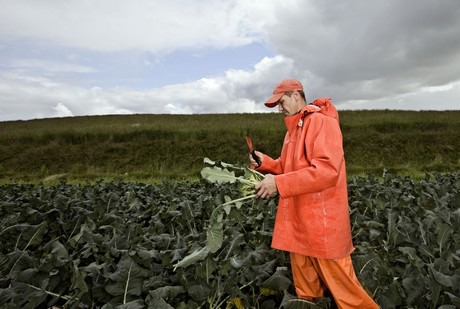The cauliflower shortage has been well-covered in the news lately and the effects have been felt throughout Europe, with importers working to meet consumer demand despite the reduced product availability.
Icelandic import company Bananar ehf. has experienced the shortage firsthand. Purchaser Bárður Níelsson says: “Cauliflower is very popular in Iceland and we have been seeing an increase in consumption lately. The product is produced locally from July to late September, but we import it too, to meet the demand year-round.” The company currently imports cauliflower from the Netherlands, and in winter they will import from Spain. Níelsson explains: “The weather in Europe this summer has done extensive damage to the cauliflower and broccoli crops so we have been having some difficulty importing it. It is not impossible, it just means that the prices will have to increase.”

The extreme weather in Europe has caused more than just a cauliflower shortage. Not only did the heatwave cause lower yields of certain products, it also damaged products that were being transported at the time. Níelsson says: “We import herbs from the Netherlands and then we fly them into Iceland from Belgium. During the heatwave it got so hot that part of the shipment was damaged when it arrived.”
Eco-conscious trends
Níelsson discusses the increasing popularity of smaller sized apples: “We are seeing that people are more often purchasing smaller apples rather than larger ones. When people eat apples as snack food, they end up partially throwing away the larger apples because they don’t eat the whole thing. This is especially true for children, who are given apples as a healthy snack. Snack fruit and snack vegetables are very popular now, and the smaller size apples fit into this pattern. It also reflects the growing consciousness of food waste, and people are more mindful about throwing away food. Offering certain products in smaller sizes helps address this.”

Other eco-conscious trends that the company engages in are those of packaging and organic foods. As a response to the global concern about plastic, the company has begun adjusting the packaging sell their produce in. For example, cauliflower and broccoli are now sold without any plastic wrapping and the company is also looking toward changing out plastic punnets for cardboard ones.
Approximately 5% of the company’s imports are organic, however, Níelsson remarks: “Everybody is interested in organic products, but only a small fraction of these people are also interested in paying for it. While most people like the idea, they aren’t willing to pay more for it. This is why organic produce only constitutes a small piece of our imports.” When asked what he sees for the future of organic, Níelsson remains positive: “Young people are more conscious about what they are eating and this will impact the future of organic and make it more popular.”

The company is looking toward to expanding the variety of items they import from Britain; Níelsson is specifically interested in important products such as berries, spinach, and lettuce.
For more information:
Bárður Níelsson
Bananar ehf.
Tel: +35 45250100
Email: bardur@bananar.is
www.bananar.is
